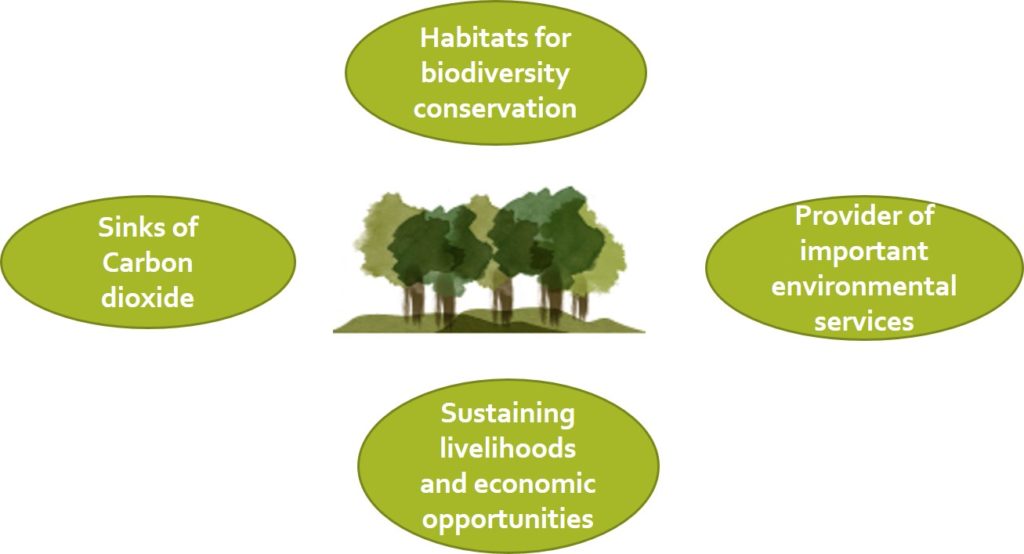PROJECTS
The role and potential of blueberry farming in increasing deforestation in southern Georgia, United States
Abstract
Several studies have analyzed the social, economic, and environmental impacts of deforestation in the context of developing countries. However, no study, to the best of our knowledge, has focused directly on the role of expanding demand for agricultural commodities on deforestation in the context of developed countries, in general, and the United States, in particular. We used an integrative approach to understand linkages between deforestation and agricultural expansion in SE Georgia where about 15,000 hectares of evergreen forestlands and grasslands have been converted to blueberries between 2010 and 2017. We first developed economic models to understand any differences in profitability between a hectare of pine plantation and blueberry orchard. The economic analysis shows that the annualized net present value of blueberry production is higher by $3,848.0/ha than loblolly pine in the region. We developed a site suitability model using geospatial tools for blueberry production in SE Georgia as well and found that about 85% of the available land is suitable for blueberry production in SE Georgia. We also found that about 80% of existing pine forestlands overlap with the land that is suitable for blueberry production. Our results indicate that a further rise in the demand for blueberries could increase deforestation in SE Georgia. We suggest an integrated approach based on innovative economic policies for reducing deforestation in SE Georgia.
For detail paper please visit
https://www.sciencedirect.com/science/article/pii/S0308521X18309041
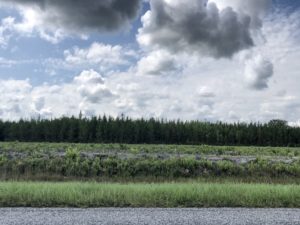
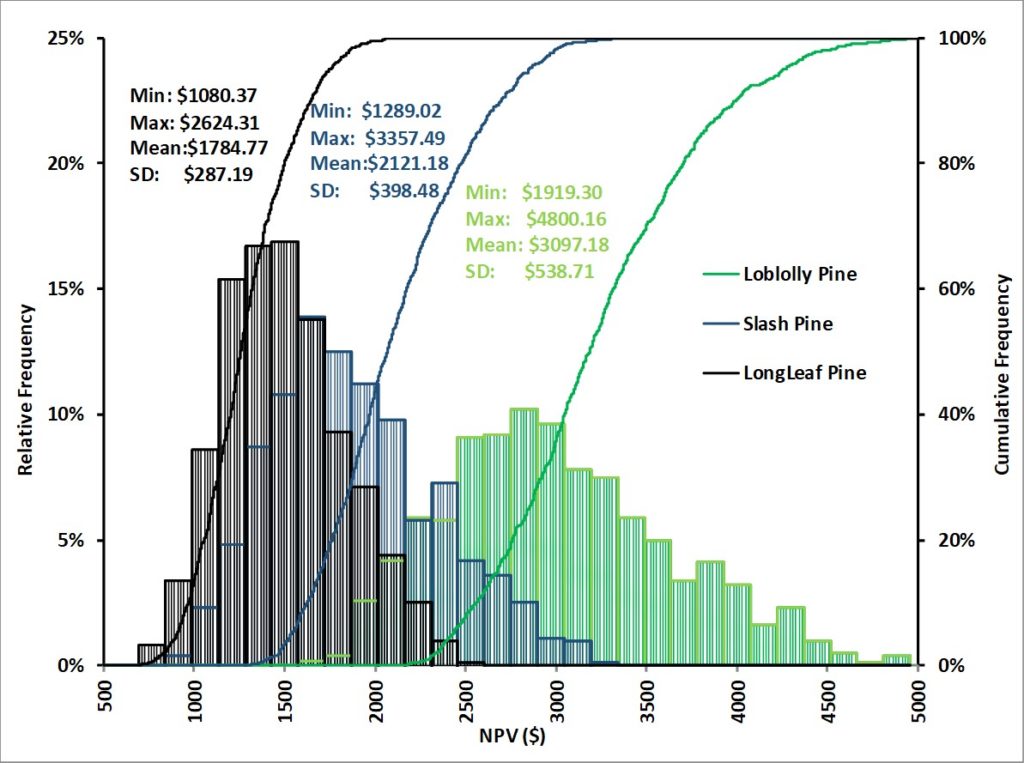
What motivates landowners to grow blueberries in land previously pine forest ?
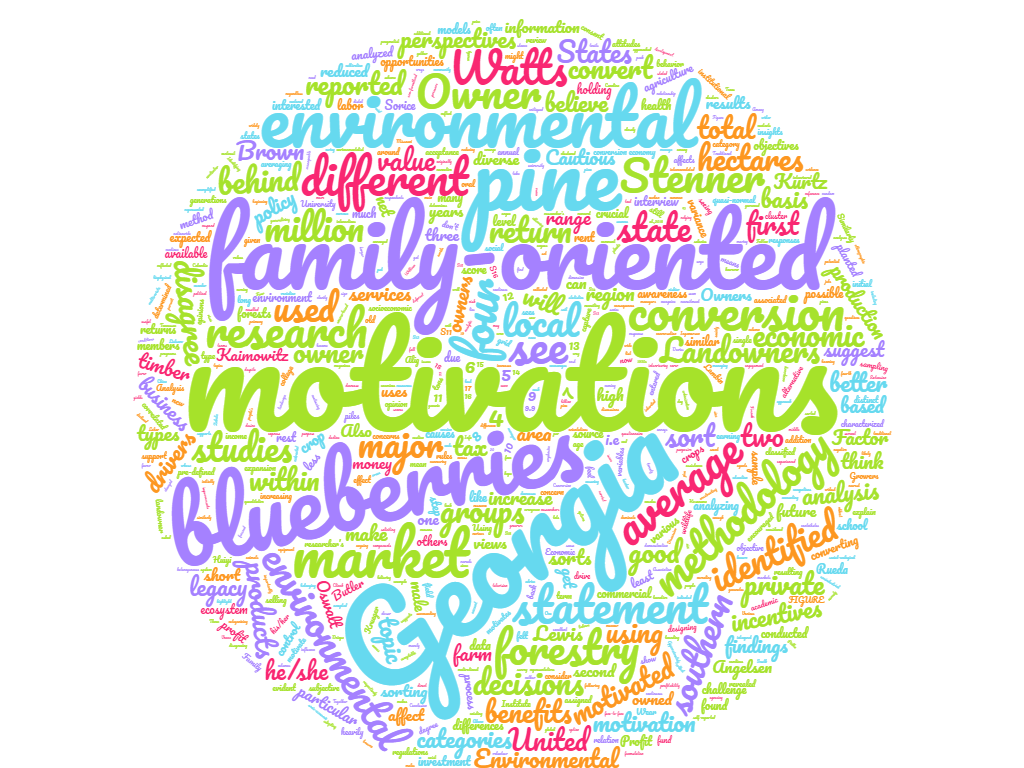
Effects of Deforestation
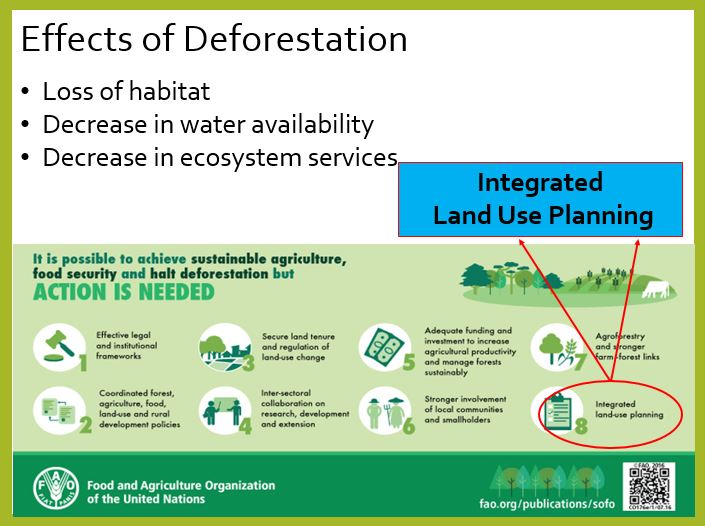
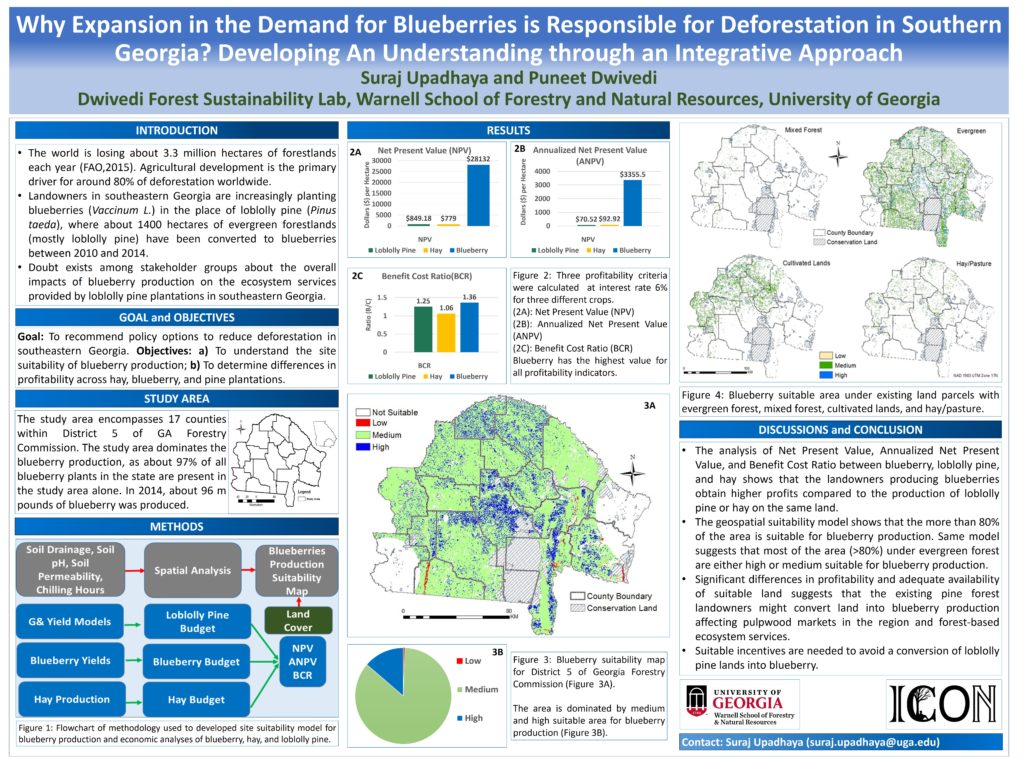
Benefits of Forests
